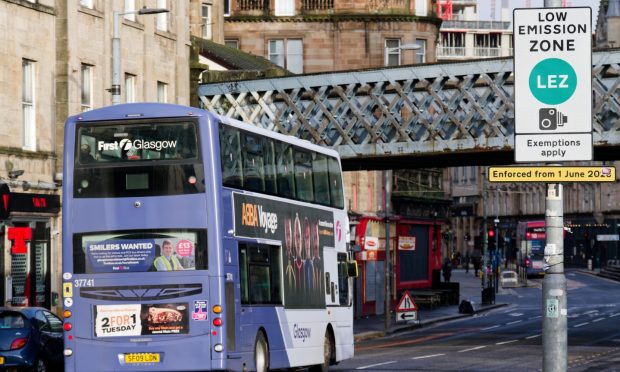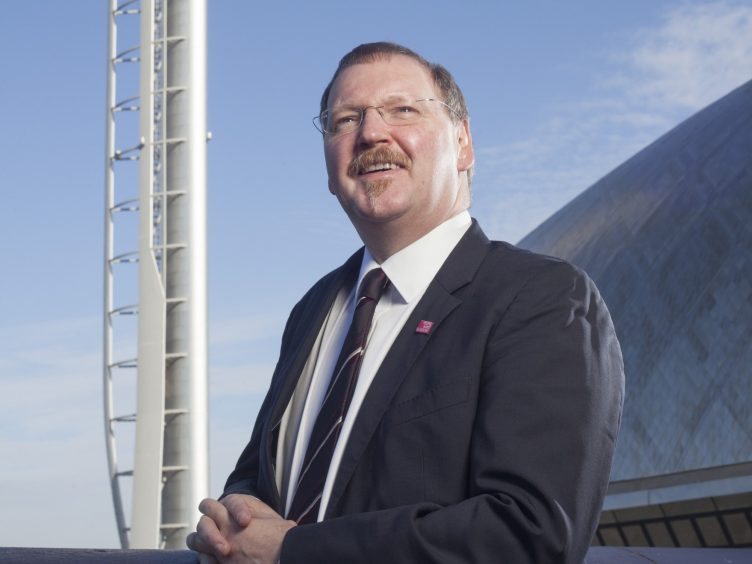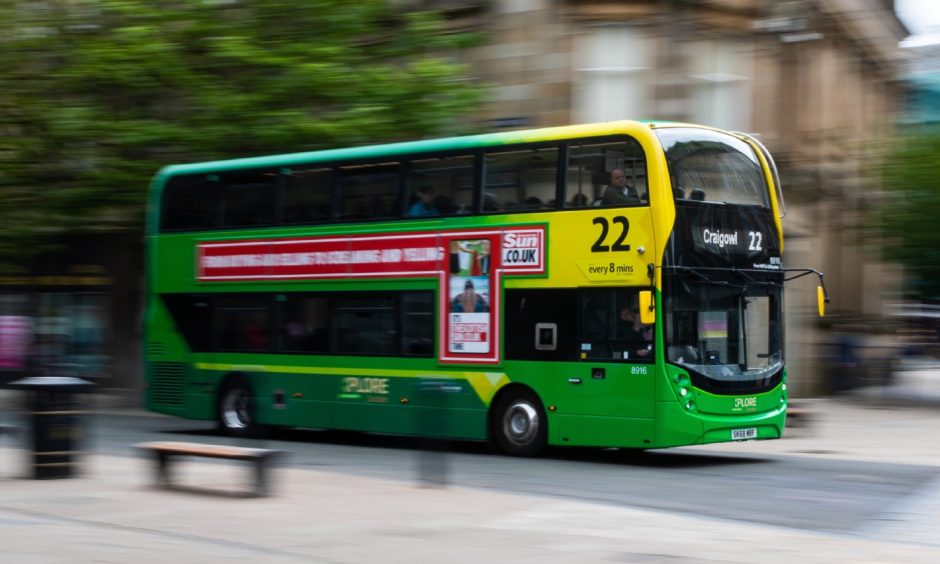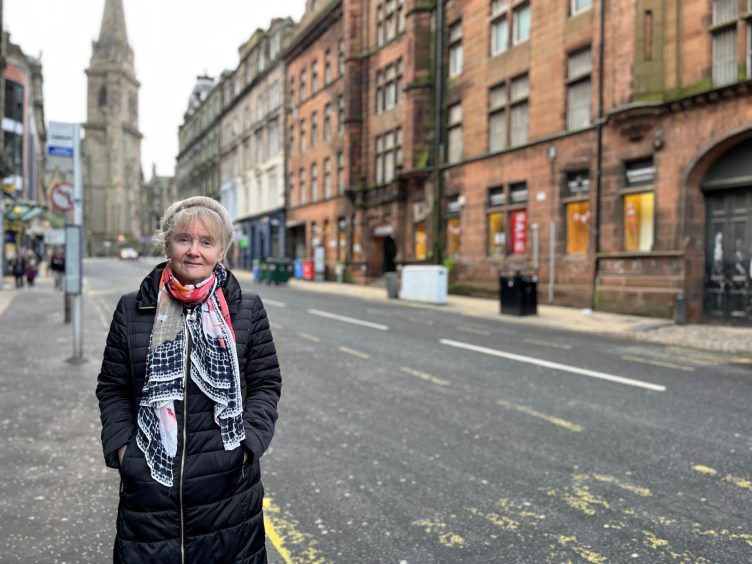The impact of a Low Emission Zone (LEZ) on Dundee City Centre will become more clear in less than three months time.
From May 30, Dundee’s LEZ will become legally enforceable following a two-year grace period.
This means £60 fines for non-compliant vehicles, which will reduce harmful air pollution in the city centre.
Some residents and businesses that find themselves included within the borders of the LEZ have concerns about the new restrictions.
The limits of Dundee’s LEZ generally includes the area inside the Inner Ring Road, but excludes the Bell Street, West Marketgait NCP and Wellgate car parks.
But is Dundee prepared for the Low Emission Zone or is it at risk of becoming a ghost town when the LEZ charges come into place in May?
What can Dundee learn from Glasgow’s Low Emission Zone?
A possible case study for concerned Dundonians is Glasgow, after it became the first Scottish city to introduce a legally enforced LEZ in June 2023.
This could prove some clues to what Dundee City Centre could look like from this summer, albeit on a much larger scale.
Glasgow’s chamber backed the LEZ proposals, but says there has been a recent economic downturn in the city centre.
Dr Stuart Patrick is the chief executive of the Glasgow Chamber of Commerce.
“We have been seeing year on year growth in footfall and spend right up until the autumn”, says Dr Patrick.
“But in the last quarter of 2023 we saw footfall stagnate. We certainly haven’t seen any growth.
“We can’t say what the LEZ’s role was in that or not. But some businesses are very concerned about the extent of it.

“I think in particular how one has drawn the boundaries for the LEZ has always been a concern. The boundaries (in Glasgow) were drawn so widely and could have been drawn more carefully.”
Dr Patrick adds: “Some retailers suggested to us that they were concerned that the LEZ’s promotion sounded like it was a congestion charge.
Glasgow Chamber says LEZ measures ‘problematic’
“That impression was certainly becoming a concern amongst some of the retailers and the fines are very punitive.
“Glasgow City Centre is not in the best condition given the shift away from bricks and mortar retailing to digital retailing.
Any city that is wanting to make the most of a LEZ also has to be looking at what it’s doing to improve its public transport on offer.”
Dr Stuart Patrick
“There is a general sense that measures acting as a disincentive to coming into the city centre are problematic.”
With an added incentive to leave the car at home, visitors to Glasgow and Dundee city centres are likely to become more reliant on buses and taxis.
However, Dr Patrick has concerns about how Glasgow’s transport system has been dealing with the LEZ.
“Part of the understanding was that there would be improvements to public transport and we’re not seeing a great deal of movement on that”, he says.
“Any city that is wanting to make the most of a LEZ also has to be looking at what it’s doing to improve its public transport on offer.”
What role will public transport play when the Dundee LEZ is enforced?
Dundee’s taxis and buses will want to avoid similar criticism over the coming months.
For the most part, Xplore Dundee and Dundee’s taxi fleet are rising to the challenge of producing less emissions.
Most Dundee taxis run on electricity or are in the process of upgrading, while Xplore’s large bus fleet is heading the same way.
Xplore’s general manager, Stephan Riggins, says that the city’s largest city bus provider is well prepared for the Dundee Low Emission Zone.
“Since becoming part of McGill’s Group, we have invested in the renewal of our fleet which has included newer buses”, he explains.
“In some cases electric zero-emission buses, such as the ultra-low-emission Euro VI buses, (are) ready to meet the requirements in the LEZ. We are fully compliant ahead of the deadline.
“Obviously, there will be varied opinion from members of the public on the LEZ and the benefits it may or may not bring. But any improvement to air quality in the city is welcome.
The marketing of LEZs has been consistent that LEZs are not a congestion charge.”
Transport Scotland
“We aren’t concerned about how the policy will affect Xplore Dundee and public transport users generally. It ought to reduce congestion and improve journey times for bus passengers.
“It provides us with the opportunity to ensure bus is a mode of choice and that we are continuing our roll-out of improvements to our customer offer in 2024.
“We want to make it as easy as possible for the people of Dundee to get about.
“If some now choose to leave their car at home then we hope we can play a role in helping them get to their destination.”
Why is the Dundee LEZ being introduced?
The Scottish Government is hoping that allowing only cleaner vehicles into city centres will reduce air pollution and create a cleaner environment.
In January, a Dundee University study revealed that children could be disproportionately affected by air pollution produced by vehicles.
It gathered data from almost 35,000 admissions to Dundee’s Ninewells Hospital over a 14-year period.
Professor Jill Belch is from the Dundee’s School of Medicine and was one of the co-authors of the report.
She advocates expanding LEZs to combat air pollution through reducing levels of NO2 that fill the air.
“LEZs are undoubtedly the best way to get rid of air pollution”, says Professor Belch.
“But it does come at a price to local authorities in terms of installation, monitoring and enforcement.
“That is why community pressure is so important for having these zones adopted.
“The benefits to a child’s health, from the evidence we have gathered, is clear.
“The health effects can take two or three years to emerge but if you look at Germany and France then they are already showing benefits.
“The same will apply in cities like London and Dundee in years to come. We know that the air they breathe now will affect them for the rest of their lives.”
Aberdeen and Edinburgh city centres are also preparing to implement the zones later this year.
Transport Scotland ‘committed’ to providing public transport alternative
Transport Scotland bosses say that £8.9 million has been paid to lower income households and smaller businesses to help them adapt to the LEZ.
A spokesperson said: “The experiences of Glasgow’s introduction of LEZs are already informing the delivery of similar schemes in Dundee, Aberdeen and Edinburgh.
“The marketing of LEZs has been consistent that LEZs are not a congestion charge. Generally, all petrol cars newer than 2006 and diesel cars newer than September 2015 are compliant.
“Scotland’s LEZs are key to protecting public health by improving air quality and also encouraging a shift to public transport.














Conversation